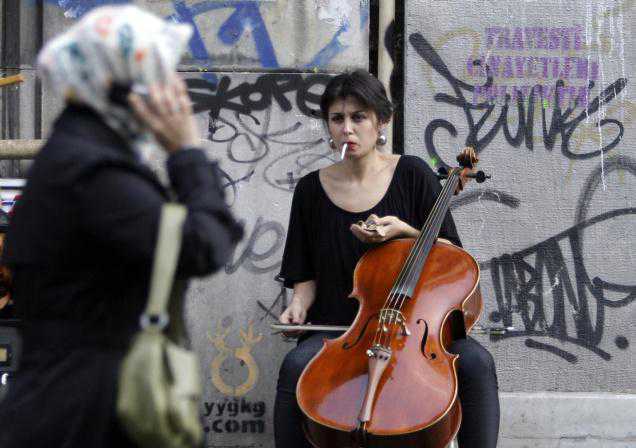Nobel prize winner Orhan Pamuk’s story of forbidden love in Istanbul heads a star-studded list of global authors shortlisted for the Independent foreign fiction prize today.

Pamuk’s The Museum of Innocence, the Turkish author’s first novel since winning the Nobel prize for literature in 2006, tells the tale of rich Kemal’s love for his poor relation, the shopgirl Fusun. It is shortlisted for the £10,000 Independent prize alongside a host of other award-winning books. The nominees range from Red April, Santiago Roncagliolo’s story of a brutal murder in a small Latin American town, which won the Peruvian writer Spain’s Alfaguara prize, to The Sickness, the debut offering from the Venezuelan author and poet Alberto Barrera Tyszka, which scooped the Herralde award.
Per Petterson, a former winner of the Independent prize, makes the line-up for his Norwegian novel I Curse the River of Time. The book is set in 1989, as communism crumbles and Arvid Jansen seeks to make sense of his life while he struggles with a divorce and his mother’s cancer diagnosis.
The shortlist is completed by German author Jenny Erpenbeck’s bestseller, Visitation – the story of a house built on land with a dark history – and Kamchatka, by the Argentinian writer, film-maker and journalist Marcelo Figueras, which is about a 10-year-old boy whose parents go into hiding after the junta take control of 1970s Buenos Aires.
Judge and literary editor of the Independent Boyd Tonkin said the shortlist combined “a supremely high standard of imagination and expression with a sweeping variety of forms and settings”.
“From Orhan Pamuk’s romantic epic of love and change in Istanbul to Santiago Roncagliolo’s thrilling, chilling novel of Peru in conflict; from Per Petterson’s wistful and touching account of a troubled youth in Norway to Jenny Erpenbeck’s lyrical vision of German history via a single house and its inhabitants, the selection will move, inspire and enlighten,” said Tonkin. He is joined on the judging panel by novelists MJ Hyland and Neel Mukherjee, writer, academic and broadcaster Harriett Gilbert, and writer and professor of Russian Catriona Kelly.
With past winners including Milan Kundera and Paul Verhaegan as well as Pamuk and Petterson, the award goes to the best work of contemporary fiction in translation and is split equally between writer and translator. This year’s winner will be announced on 26 May.
via Orhan Pamuk leads shortlist for Independent foreign fiction prize | Books | guardian.co.uk.



